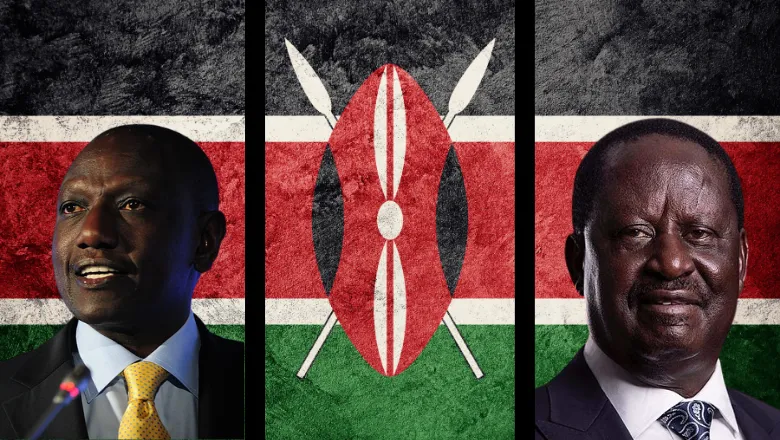Opaqueness in result transmission leads to the sorts of problems we have seen. The problem is not the quality of electoral institutions in Kenya per se, but rather the quality of personnel given responsibility over these crucial electoral institutions.
Dr Fred Ajwang
16 August 2022
What next for Kenya as new president is announced amid election disruption
With the long-awaited presidential election results now revealed, what comes next for Kenya and incoming president William Ruto?

After several days of counting and verification, Kenya’s Independent Electoral and Boundaries Commission (IEBC) declared on Monday night (15 August) that Mr Ruto, the former vice-president, had claimed a narrow win over rival and hitherto favourite Raila Odinga.
However, the latter stages of the process were marred by scuffles at the verification centre in Nairobi and the public refutation of the results by four members of the IEBC.
In his maiden speech as president-elect, Mr Ruto said he would run a “…transparent, open, democratic government” and announced his willingness to work with opposition politicians but, with Mr Odinga yet to officially accept the outcome, should Kenyans be prepared for more turbulence?
Dr Fred Ajwang, expert on Kenyan politics at the Department of Political Economy, King’s College London, said: “The escalation we saw at the national tallying centre was expected given the opaque way that the IEBC decided to tabulate the results. The opaqueness also opened the gate for flourishing of misinformation from either side as each claimed to be either winning or being rigged out.
“Will Mr Odinga contest the results? We don't know but Uhuru Kenyatta [the outgoing president] may ask him or convince him not to. I also feel that most Kenyans would want him to put this behind him as the electioneering period has been way too long precisely because of the early campaigns by the eventual winner Mr Ruto.
“And there are a lot of pressing issues that the new president needs to deal with, key being the cost of living crisis.”
Dr Ajwang said it was “too early to know” if Mr Odinga would step aside and accept the result and added the “the last-minute act by the four IEBC commissioners” to reject the results may make any claims of irregularity he makes credible.
So what is the key lesson from this election process?
Dr Ajwang said: “Opaqueness in result transmission leads to the sorts of problems we have seen. The problem is not the quality of electoral institutions in Kenya per se, but rather the quality of personnel given responsibility over these crucial electoral institutions.
“As long as individuals responsible for elections are perceived to be malleable to political manipulation are in-charge of electoral institutions, then results will always be contested.”
Moving forward, Dr Ajwang said greater transparency in counting and transmission of results would be key and the media should be offered a joint transmission centre for results to reduce confusion and tensions.
He added: “It is interesting that in 2002 with manual voting, the eventual winner was known 24 hours after the vote closed yet 20 years down the line and with technology, it has taken us a week to know the winner of the elections.”
